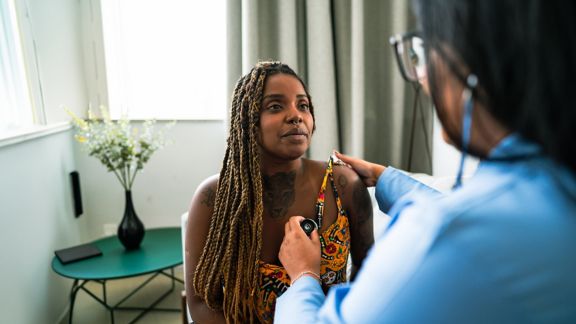OPA Technical Assistance & Logistics Support

Problem
OPA had a wide range of diverse grantees who needed support and technical assistance.
The Department of Health and Human Services' Office of Population Affairs (OPA) advanced health throughout the reproductive lifespan by delivering innovative, evidence-based adolescent health and family planning programs, services, strategic partnerships, evaluations, and research. To achieve this mission, OPA provided grants to states, tribes, and local organizations aimed at preventing teen pregnancy, supporting expectant and parenting youth, offering family planning services, and implementing embryo adoption initiatives. OPA required technical and logistical resources to effectively monitor and support its network of approximately 170 grantees.
Solution
A centralized support system for comprehensive program assistance
OPA engaged NORC to lead the Technical Assistance and Logistics Support project, which was designed to support OPA’s mission of advancing reproductive health outcomes and promoting adolescent health and well-being. This project played a critical role in ensuring the effective administration of key OPA programs, including the Title X Family Planning Program, the Teen Pregnancy Prevention Program, and the Embryo Adoption Awareness and Services Program. The project involved a comprehensive set of activities aimed at enhancing OPA’s capacity to deliver high-quality clinical services, evidence-based programs, and rigorous evaluation efforts.
Meeting planning and facilitation: Organized and conducted orientations, meetings, conferences, and events that brought together OPA’s grantees, stakeholders, and partners to share insights, foster collaboration, and inform policy discussions on reproductive health and adolescent well-being.
Expert engagement: Identified and involved subject matter experts to contribute specialized knowledge, ensuring that OPA programs were informed by the latest research and best practices in family planning, adolescent health, and other population-related issues.
Data collection: Supported the rigorous collection and analysis of program data, enabling OPA to make evidence-based decisions and continuously improve the effectiveness of its programs.
Identification and development of performance measures: Established performance metrics to evaluate the success and impact of OPA’s programs, ensuring alignment with the agency’s strategic goals in reproductive health and adolescent health.
Professional development training: Provided training and capacity-building opportunities for OPA’s grantees and staff, equipping them with the skills and knowledge needed to implement innovative and evidence-based programs.
Literature reviews and program evaluations: Conducted thorough reviews of current research and program outcomes to inform OPA’s policy recommendations to the Secretary of Health and Human Services and the Assistant Secretary for Health on a wide range of population health topics, including family planning and adolescent health.
Result
NORC delivered literature reviews, facilitated grantee meetings, hosted technical expert panels, conducted program reviews, and provided professional training.
NORC conducted comprehensive literature reviews on critical topics related to family planning, teen pregnancy prevention, and adolescent health. These reviews provided in-depth analysis and insights to inform program development and policy recommendations.
In addition, NORC organized and facilitated a wide range of virtual and in-person meetings, as well as technical expert panel discussions. These forums were designed to foster collaboration, support sustainability efforts, and improve overall program effectiveness within the Title X and Teen Pregnancy Prevention (TPP) program portfolios, ensuring that all stakeholders were well-equipped to achieve program goals.
Specifically, NORC oversaw the logistics management of OPA’s bi-annual Title X and Teen Pregnancy Prevention Grantee Conferences. These large-scale events, which attracted an average of 400+ attendees ranging from OPA grantees, staff, federal partners, and training partners, served as crucial gatherings for information sharing, networking, and capacity building, helping to strengthen the impact of OPA’s programs and initiatives on a national scale.
Project Director
Related Tags
Project Leads
-
Kate Fromknecht
Senior Research DirectorProject Director -
Rachel (Kappel) Van Vleet
Research ScientistProject Manager -
Gabi Aden
Associate Director of EventsTask Lead -
Amy Horn Groenendaal
Senior Research DirectorTask Lead -
Jackie Sheridan-Johnson
Research ScientistTask Lead













